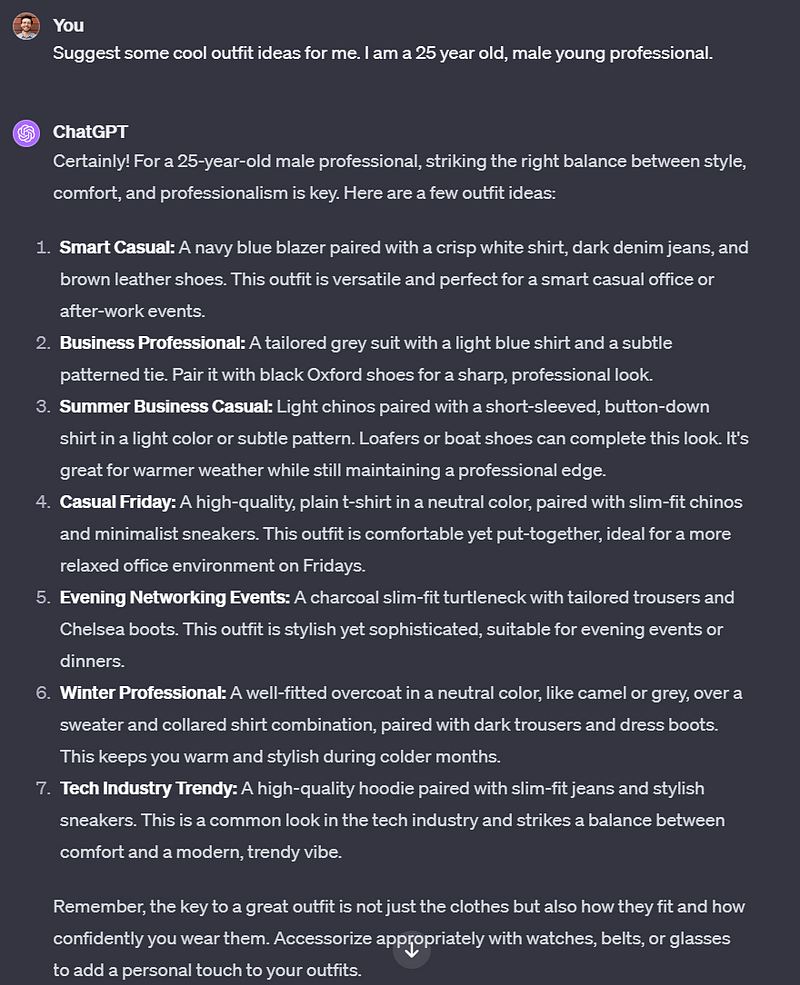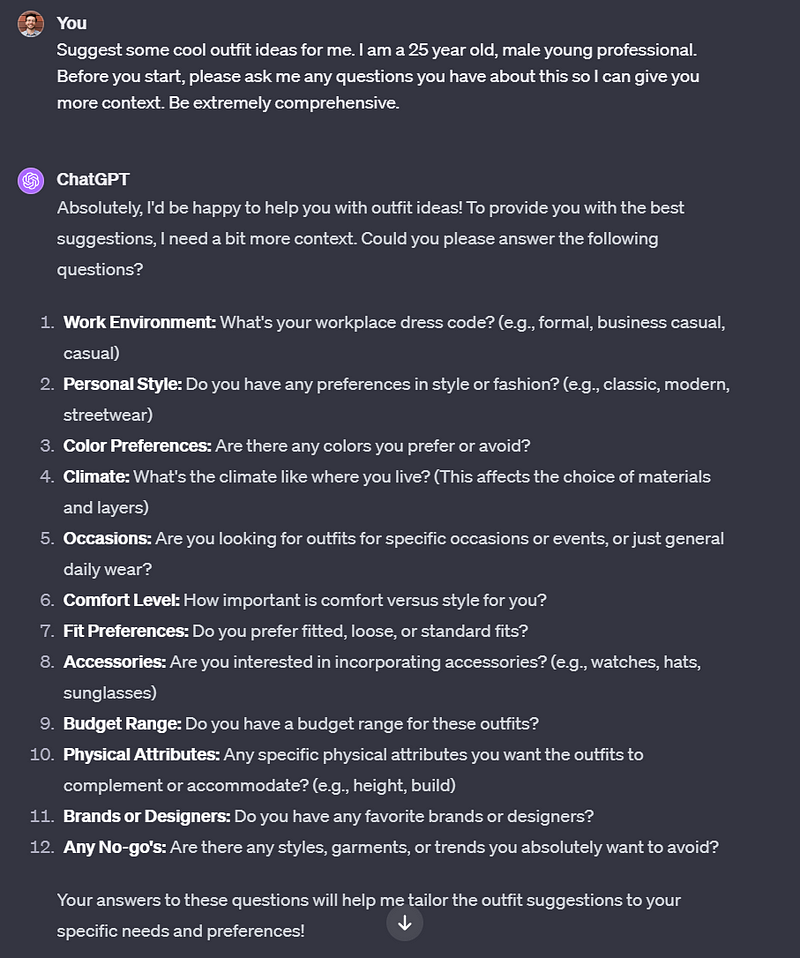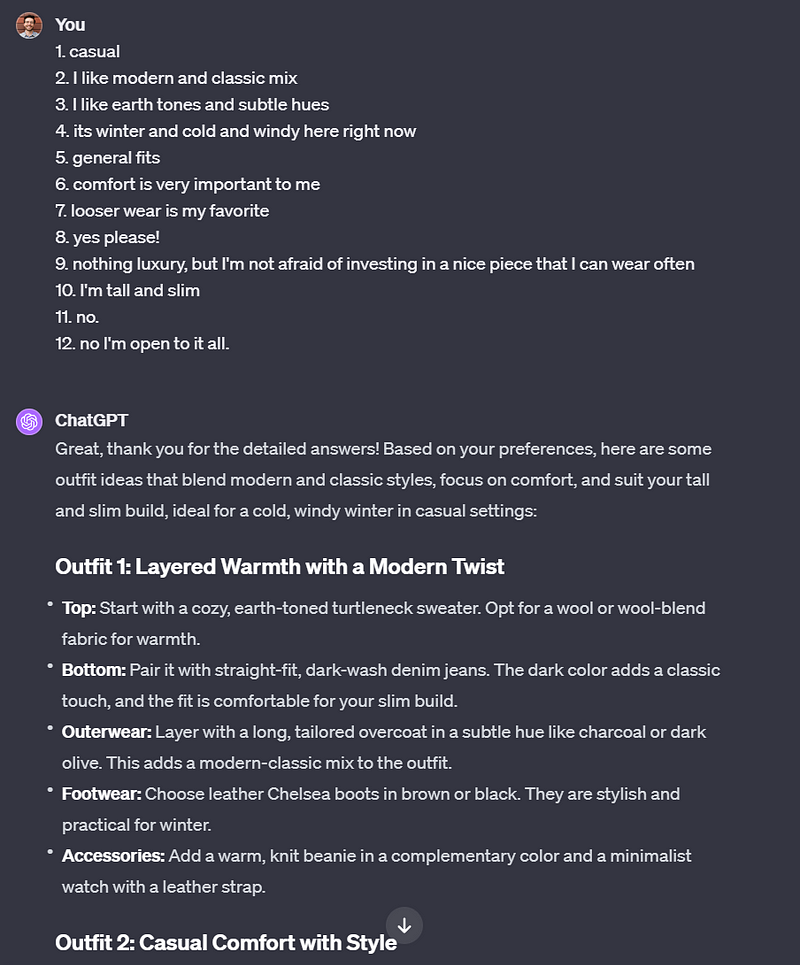The Most Important ChatGPT Prompt
I‘ve read dozens of articles about “the best ChatGPT prompts,” but I’ve never seen the most effective one…

When I first introduced my brother to the wonders of ChatGPT, it took him less than five minutes to say, “This thing is dumb and useless.”
This happened about eight months ago. I remember he asked GPT to write him a lab report from scratch, and I assured him it would do an excellent job. He put in the lab instructions, the report questions, and his experimental data.
The lab report output by ChatGPT, to put it nicely, was hot garbage. The report was riddled with loosely connected sections, rife with hallucinations, and packed with hamfisted data stuffing. The report was entirely unusable from the outset to the point where it wasn’t even worth prompting for another one.
At that moment, my brother immediately lost all faith in ChatGPT, and he went back to writing manually. I had to admit, I was disappointed in it as well.
A contextual realization
I reflected on this experience, and I wondered why it faired so poorly when I assured him it wouldn’t. I thought about all the times I had great success with GPT, and I suddenly had a realization. ChatGPT thrives on information.
ChatGPT is a master of semantics; it understands the deep interrelations between nearly all textual information. However, it has a huge flaw: it cannot accurately infer.
ChatGPT’s true purpose is to output text that imitates that of a real human, and it will go to great lengths to do that for you (including hallucinating falsehoods). Asking ChatGPT to output something, especially touchy and complex writing such as a lab report, without giving it enough information is a recipe for disaster.
But here’s the catch — how do you know when you’ve given it enough information? ChatGPT will almost always assume that it has the requisite information that it needs to complete your request, even if it doesn’t.
Here lies the crux of my realization: only ChatGPT knows what it doesn’t know. So why not ask it?
Asking the right questions

I realized that a single prompt was the answer to this problem (and infinitely many more problems like it). A single line tacked on to the end of nearly any request can make ChatGPT output more informed, denser, and more factual writing.
This article is beginning to feel like a recipe with someone’s excruciatingly over-detailed life story at the beginning, so I’ll get straight to the point:
ChatGPT knows what it doesn’t know. You don’t know what ChatGPT doesn’t know because it doesn’t tell you. We can cure this disconnect with one simple prompt:
“Before you start, please ask me any questions you have about this so I can give you more context. Be extremely comprehensive.”
Why does this work?
As I said earlier, ChatGPT will output something that seems good, even if it doesn’t have the information it needs. So why not force it to gather info it doesn’t know from the only person who does?
After using this prompt, ChatGPT will rattle off 10–15 insightful questions, asking you about information that you totally forgot that it needed. In your next prompt, simply list out the numbers of the questions and answer them sequentially.
Now that it has all the information it needs, it can write a significantly more informed output, complete with infinitely less guesswork. You’ll be amazed at the quality jump.
The prompt in action
Here is a side-by-side comparison of ChatGPT output, first without the prompt and then with:
Not using the question prompt:

Same prompt, new chat, now using the question prompt:

I then answered these questions, and you can see just how much better the output was:

While this is a pretty extreme example (I gave it almost no information from the outset), you can see just how incredible the output becomes in the second scenario (which was only the first outfit of three, by the way).

The beauty of this prompt is that it works for almost any request you’ll ever have of ChatGPT. Writing a blog post? Give it more information via questions. Writing an abstract for your paper? Ask it to ask you questions about info not found in the paper. Need advice about a complex interpersonal issue with a friend? Use the question prompt.
I don’t say this lightly — it’s a bit of a panacea. For the last eight months, I’ve been using it daily, and I hope you will, too.
Thanks for reading!
-Jordan






